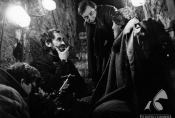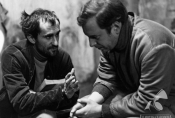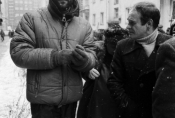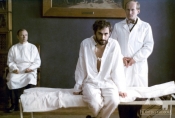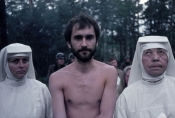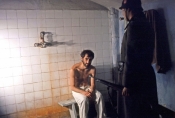Piotr Szulkin
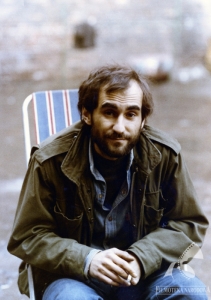
Film, theatre and television director, writer, designer, actor, teacher, writer. He was born on April 26, 1950, in Gdansk. A graduate of the Directing Department of the State School of Film, Television and Theatre in Łódź (1975). After graduation, he made several extremely interesting short films, some of them at the Warsaw Documentary Film Studio – Narodziny/Birth (1975), Życie codzienne/Daily Life (1976); at the Educational Film Studio in Łódź – Dziewce z ciortem/A Girl with the Devil (1975, Award in Mannheim and Krakow), Kobiety pracujące/Women Working (1978, award in Oberhausen); at the Studio of Animated Films in Krakow – Copyright by Film Polski MCMLXXVI (1976); at the "Tor" Film Studio – the medium-length feature Oczy uroczne/Enthralling Eyes (1976, awards in Barcelona and Trieste), based on a folk parable. In 1993, he returned to short films with the great Mięso (ironica)/Meat (Silver Dragon in Krakow, awards in Oberhausen, Montecatini, Keszthely), which mocks the Polish approach to the fate of the country and its people. The starting point for the reflection is... meat, known as the "strategic resource" of the People's Republic. Raising meat prices often resulted in a change of government. The film is a mixture of sociological essay, musical comedy and cabaret grotesque.
His debut feature film Golem (1979, awards in Gdańsk, Łagów, Koszalin and Madrid) is a poignant story about life in a dehumanised city devoid of all values, inspired by the legend of the golem and the famous book by Gustav Meyrink. Completed before the introduction of martial law in Poland, Wojna światów – następne stulecie/War of the Worlds – the Next Century (1981, awards in Madrid, Porto, Trieste) is a film clearly anticipating our reality: a suggestive study of a cowed, passive society, controlled by the ubiquitous TV, set in the year 2000, just after Martians have invaded the Earth. The world after a nuclear cataclysm appears also in Szulkin’s next film, O-bi, o-ba. Koniec cywilizacji/O-bi, O-ba. The End of Civilization (1984, award in Lille). Several hundred people have taken refuge under a concrete dome. They are awaiting the arrival of a cosmic ark which will bring them salvation. They do not know that the ark is just a figment of the ruling groups... The grotesque Ga, ga. Chwała bohaterom/Ga, ga. Glory to the Heroes (1985, award in Strasbourg, Clermont-Ferrand) is a story set in a time when earthlings have already colonised all neighbouring planets. They live comfortably and are not particularly interested in working, especially in such a dangerous profession as an astronaut. Therefore, they use prisoners to fly spaceships. The 1990 Femina, an adaptation of the popular novel by Krystyna Kofta Pawilon małych drapieżców/Pavilion of Small Predators, devoted to the erotic obsessions of a lonely woman, is clearly inspired by Buñuel’s Belle du Jour,; his Król Ubu/King Ubu (2003), inspired by the play by Alfred Jarry, is a variation on the not particularly wise but cunning monarch, who, under the guise of a struggle for freedom and democracy, seized power after a bloodbath and ruled caring only about himself.
Jerzy Armata
